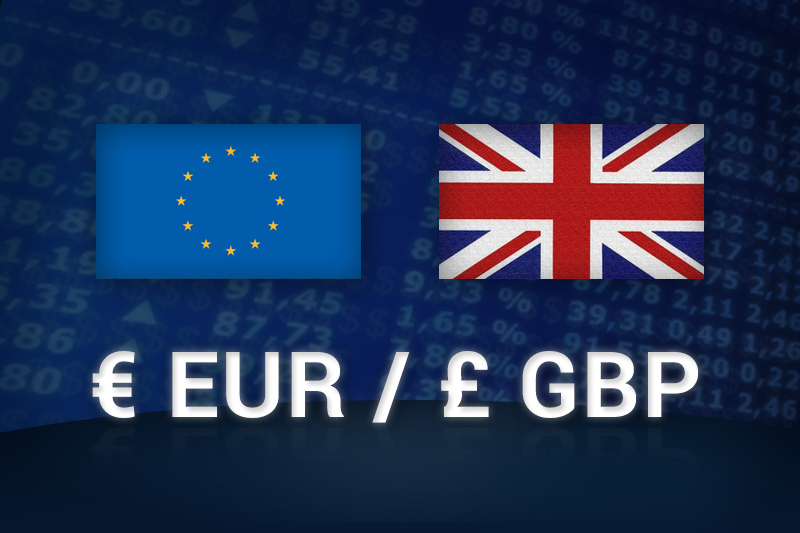Investing.com - The euro held gains against the pound on Tuesday, following the release of data showing that the euro zone economy avoided a recession in the first quarter, but the single currency remained under pressure amid concerns over political deadlock in Greece.
EUR/GBP hit 0.8002 during European morning trade, the session high; the pair subsequently consolidated at 0.7992, gaining 0.31%.
The pair was likely to find support at 0.7962, Monday’s low and a three-and-a-half year low and resistance at 0.8029, Monday’s high.
The euro zone’s gross domestic product was flat during the three months to March, defying expectations for a contraction of 0.2%. The euro zone economy contracted by 0.3% in the fourth quarter of 2011.
The euro pushed higher earlier after preliminary data showed that Germany’s economy expanded 0.5% in the first quarter, above expectations for a growth of 0.1%, indicating that the bloc’s largest economy is weathering the effects of the crisis in the region.
Greece’s GDP contracted at an annualized rate of 6.2% in the first three months of 2012.
Elsewhere, data showed that the ZEW index of German economic sentiment deteriorated significantly more-than-expected this month, declining for the first time in six months.
The ZEW Centre for Economic Research said that its index of German economic sentiment declined to 10.8, from April’s reading of 23.4. Analysts had expected the index to decline to 19.0 in May.
Meanwhile, investors remained cautious ahead of a fresh round of Greek cross party talks aimed at forming a government, after a more than week-long political stalemate fuelled fears over the country’s ability to uphold its financial commitments and its possible exit from the euro zone.
The euro clung to gains against the U.S. dollar and the yen, with EUR/USD up 0.17% to trade at 1.2843 and EUR/JPY gaining 0.23% to hit 102.61.
Later in the day, the U.S. was to publish official data on retail sales and consumer price inflation, as well as a report on manufacturing activity in New York.
EUR/GBP hit 0.8002 during European morning trade, the session high; the pair subsequently consolidated at 0.7992, gaining 0.31%.
The pair was likely to find support at 0.7962, Monday’s low and a three-and-a-half year low and resistance at 0.8029, Monday’s high.
The euro zone’s gross domestic product was flat during the three months to March, defying expectations for a contraction of 0.2%. The euro zone economy contracted by 0.3% in the fourth quarter of 2011.
The euro pushed higher earlier after preliminary data showed that Germany’s economy expanded 0.5% in the first quarter, above expectations for a growth of 0.1%, indicating that the bloc’s largest economy is weathering the effects of the crisis in the region.
Greece’s GDP contracted at an annualized rate of 6.2% in the first three months of 2012.
Elsewhere, data showed that the ZEW index of German economic sentiment deteriorated significantly more-than-expected this month, declining for the first time in six months.
The ZEW Centre for Economic Research said that its index of German economic sentiment declined to 10.8, from April’s reading of 23.4. Analysts had expected the index to decline to 19.0 in May.
Meanwhile, investors remained cautious ahead of a fresh round of Greek cross party talks aimed at forming a government, after a more than week-long political stalemate fuelled fears over the country’s ability to uphold its financial commitments and its possible exit from the euro zone.
The euro clung to gains against the U.S. dollar and the yen, with EUR/USD up 0.17% to trade at 1.2843 and EUR/JPY gaining 0.23% to hit 102.61.
Later in the day, the U.S. was to publish official data on retail sales and consumer price inflation, as well as a report on manufacturing activity in New York.
